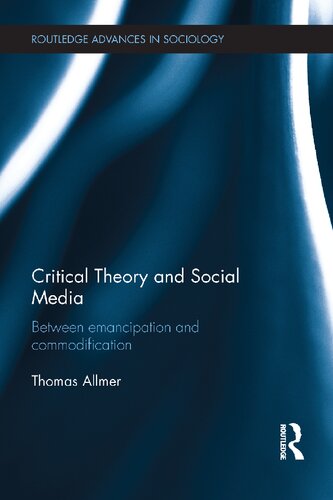

Most ebook files are in PDF format, so you can easily read them using various software such as Foxit Reader or directly on the Google Chrome browser.
Some ebook files are released by publishers in other formats such as .awz, .mobi, .epub, .fb2, etc. You may need to install specific software to read these formats on mobile/PC, such as Calibre.
Please read the tutorial at this link. https://ebooknice.com/page/post?id=faq
We offer FREE conversion to the popular formats you request; however, this may take some time. Therefore, right after payment, please email us, and we will try to provide the service as quickly as possible.
For some exceptional file formats or broken links (if any), please refrain from opening any disputes. Instead, email us first, and we will try to assist within a maximum of 6 hours.
EbookNice Team

Status:
Available0.0
0 reviewsSocial media platforms such as Facebook, YouTube, and Twitter are enormously popular: they are continuously ranked among the most frequently accessed websites worldwide. However there are as yet few studies which combine critical theoretical and empirical research in the context of digital and social media. The aim of this book is to study the constraints and emancipatory potentials of new media and to assess to what extent digital and social media can contribute to strengthen the idea of the communication and network commons, and a commons-based information society.
Based on a critical theory and political economy approach, this book explores:
Critical Theory and Social Media examines both academic discourse on, and users’ responses to, new media, making it a valuable tool for international scholars and students of sociology, media and communication studies, social theory, new media, and information society studies. Its clear and interesting insights into corporate practices of the global new media sector will mean that it appeals to critical social media users around the world.